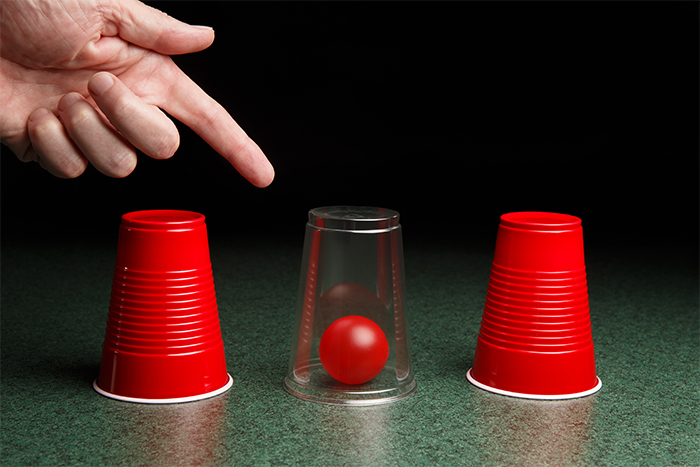 Richard and I often hear from major gift fundraisers that they just never have any time to do donor work. You are pulled in all kinds of (mis-)directions, whether you are asked to pick up a speaker at an airport (yes, this happens), run an event, deal with tons of paperwork and data entry, or be dragged into endless internal meetings. With all that going on, you can quickly lose your grip on the actual donors work you need to do.
Richard and I often hear from major gift fundraisers that they just never have any time to do donor work. You are pulled in all kinds of (mis-)directions, whether you are asked to pick up a speaker at an airport (yes, this happens), run an event, deal with tons of paperwork and data entry, or be dragged into endless internal meetings. With all that going on, you can quickly lose your grip on the actual donors work you need to do.
This is why it is so critical for you to have a plan. There are too many major gift fundraisers who shoot from the hip with their work; and even with the best intentions, it’s hard for you to stick with a plan.
At Veritus Group, we are all about structure. We know that when major gift fundraisers are working within a structure they are more productive, creative and successful than when they are not working within a structure. While it sounds counter-intuitive, structure really equals freedom in your work.
I know this first hand. I’m someone that struggles with this on a daily basis. I know that if I don’t have a plan for my year, month, week and day, I get lost pretty quickly. Ask Richard – he has a hundred stories that will attest to that.
So I come from my own experience of finding it very hard to adhere to a plan. But I do know that it’s absolutely in my best interest to do so. I’ve learned some tricks for myself that I believe can help you as it helps me.
Ultimately, the vast majority of your time has to be spent on donors. Any other time you spend elsewhere will take you off your track and have you headed for disaster. So here are some ways to create the structure you need to be successful:
How to Devise Your Plan
- Long-term, 3-5 year plan — This is looking at your caseload and your career path. Ask yourself where you see these two areas five years from now. Write it down, as it’s the vision that guides your yearly strategic planning.
- One-Year Strategic Plan — Take your portfolio and make sure that for each donor you have a column for the donor’s passions and interests, their communication preference, a revenue goal and a 12-month communication plan with at least one touch or action for each month. You might use our free Marketing Impact Chart (along with our Planning White Paper) for this purpose.
- Monthly plan — Take your one-year plan and create action/touch-points for each donor during the course of your month in your database system or calendar. Here are all the different touches/strategies to plan for.
- Proposal / Soliciting a donor
- Thanking donors
- Reporting back, showing impact to donors
- Meeting face to face
- Phone calls
- Emails
- Special touches (birthdays, anniversaries, milestones, etc.)
- Connect with donors at events, both your events and community events
- Research donors
- Service to donors (doing something special and unexpected for donors) or following up on a request.
- Weekly Plan — Take your monthly plan and break it down by the week. Make sure you schedule all of the above during your week. Yes, actually write in everything – not just meetings, but also phone calls, e-mails, research, etc. I know when I block this on my calendar, I do it. I can’t just write it down on a to-do list; I have to put in on my calendar. So for example, take researching donors. Why not schedule 1 hour per day, and block time for it on your calendar?
- Daily Schedule — Each day before you get going, I recommend you review the day to make sure that you think through the day before you start it. I will ask myself, “What do I need to do to prepare for this?” Or “what is bothering me that may prevent me from my schedule?”
- Accountability — Once you have your structure in place and you have those plans completed, I suggest you share them with your manager or colleague and to ask them to check on you weekly to see how you are doing. I do this with Richard for my work, and it forces me to make sure I’ve updated my plans and makes me think through what I’m doing every week. Sometimes it can be frustrating, but it’s helpful to keep me on track. I think it will be helpful to you.
I know all this planning seems like a lot. But a little work ahead of time will keep you focused on your donors. You will find you are much more productive, and you will feel more freedom in how you do your work. It’s helped me. While I still struggle with it, I know I’m more successful when I stay on plan. You will too.
Jeff
P.S. – If you need some in-depth instruction in this kind of structure – including qualifying donors, creating plans for them, tiering them, creating proposals and making the ask – check out our Major Gift Academy’s upcoming course for major gift fundraisers. It’s intense, but it’s worth it!







0 Comments